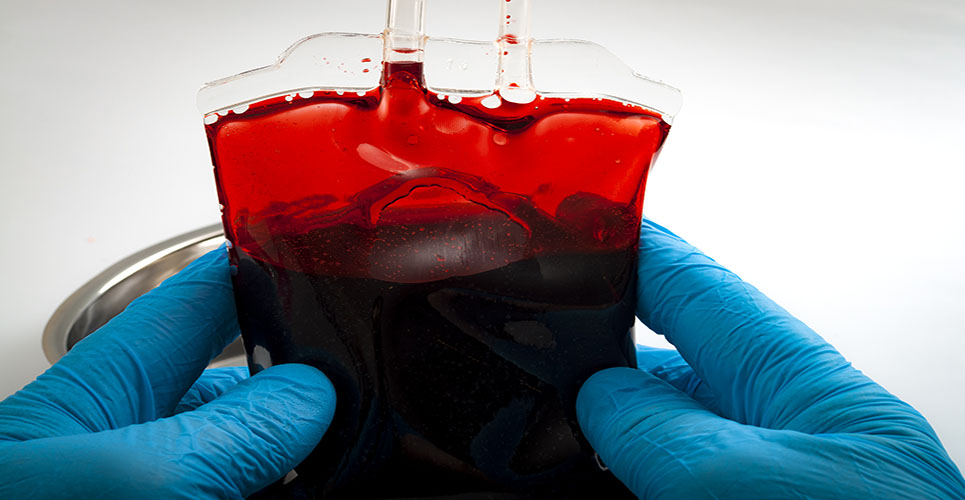Sobi and Bioverativ Inc have announced the results of a new, post-hoc, longitudinal analysis of the pivotal Phase III A-LONG study and ASPIRE long-term extension study, showing that weekly prophylactic dosing with its extended half-life therapy Elocta® (efmoroctocog alfa) has the potential to provide improved bleed protection over episodic treatment, resolve target joints and reduce the treatment burden associated with more frequent dosing intervals.
Sobi and Bioverativ Inc have announced the results of a new, post-hoc, longitudinal analysis of the pivotal Phase III A-LONG study and ASPIRE long-term extension study, showing that weekly prophylactic dosing with its extended half-life therapy Elocta® (efmoroctocog alfa) has the potential to provide improved bleed protection over episodic treatment, resolve target joints and reduce the treatment burden associated with more frequent dosing intervals.
Elocta was developed using Fc fusion technology to prolong circulation in the body and its efficacy and safety have been studied in haemophilia A patients since 2010. This new, post-hoc analysis supports a growing body of clinical data showing prophylactic treatment with Elocta can positively impact long-term joint health. Elocta is currently not indicated for weekly dosing.
“One of the challenges for people with severe haemophilia A can be treatment every few days with inadequate bleed protection,” said Maha Radhakrishnan, MD, Senior Vice President of Medical at Bioverativ. “We are committed to improving patient outcomes and continue to explore how Eloctate can meaningfully make a difference for patients with the potential for longer dosing intervals that could provide continued joint health improvement.”
Prophylactic treatment with factor therapy is recognised as the optimal therapy for severe haemophilia A, yet, according to the World Federation of Hemophilia guidelines, this treatment regimen traditionally involves injections three times per week with conventional factor based products. With Elocta’s extended half-life, patients can extend dosing intervals up to five days resulting in less frequent injections. Using data spanning four years from the pivotal Phase III A-LONG study, and ASPIRE, the long-term extension study, researchers examined subjects who were exposed to a seven-day dosing (65 IU/kg/wk) interval to assess long-term outcomes as determined by annualized bleeding rates (ABR), adherence and resolution of target joints.
In the study, 43 adults and adolescents (>12 years) were exposed to an Elocta weekly dosing interval for a median study duration of 3.1 years. Researchers also analysed results of those who maintained a weekly dosing interval throughout the study period (n=19).
For those subjects in the ever-on-weekly dosing group who had pre-study episodic treatment (n=32), transition to weekly prophylaxis dosing resulted in a change in median ABR (IQR) of -23.7 (-35.8, -12.8). For those subjects who were always on a weekly dosing regimen throughout the study period (n=19), the median pre-study ABR (IQR) for subjects on a pre-study episodic regimen was 29 (18, 45) compared to an on-study ABR (IQR) of 1.7 (0.5, 6.7). Subjects experienced protection from spontaneous bleeds (median spontaneous ABR (IQR) of 1.2 (0.2, 2.8) for subjects ever-on-weekly dosing and 0.7 (0, 1.6) for subjects always-on-weekly-dosing and from spontaneous joint bleeds (median ABR (IQR) of 0.8 (0, 2.5) in subjects ever-on-weekly dosing and 0.2 (0, 1.0) in subjects always-on-weekly-dosing).
All subjects were highly adherent while on the weekly dosing regimen (median duration of 3.1 years) and among subjects who chose to initiate a weekly dosing regimen on Elocta at any point of the study, the majority stayed on weekly dosing. One hundred percent of all evaluable target joints in both the ever-on-weekly dosing group and always-on-weekly dosing group resolved during the study period. Study findings suggest weekly dosing may be a reasonable prophylaxis regimen for patients receiving episodic treatment, who would prefer the benefit of prophylaxis and better bleed protection, but with minimal treatment burden.
“Together with Bioverativ, we have long been committed to transforming the care of people with haemophilia through our treatments and ongoing research,” said Armin Reininger, MD, PhD, Head of Medical and Scientific Affairs, Sobi. “These data show the potential of Elocta to make a difference for patients, to be able to extend their dosing intervals based on their needs, with improved joint health, and the possibility to reduce the burden of chronic treatment in patients with haemophilia.”

